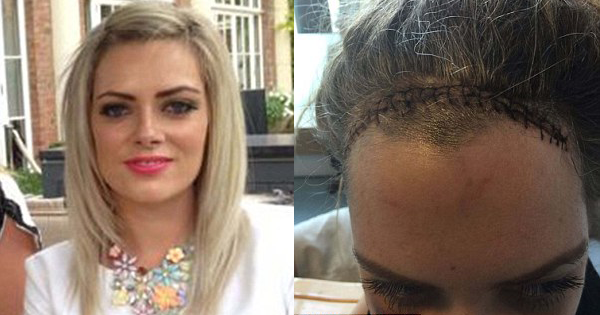Advertisement
With four young children to look after at home, Emily Corrigan was no stranger to headaches and fatigue.
As a 28-year-old mom on the go, she assumed that feeling tired and sluggish merely meant she was due for some much-needed “me time.”
It wasn’t until Corrigan’s husband found her passed out in their bed one night that she finally learned the truth: a grade two astrocytomas brain tumor.
Astrocytomas are part of a group of tumors called gliomas, the most common type that can be found in various parts of the brain.
Symptoms of these easily missed tumors are headaches, fatigue, and even seizures—most of which Corrigan chalked up to caring for her kids.
“Whenever I got a headache or felt tired I just put it down to looking after my kids. I was stressed and never thought anything more of it,” she told The Daily Mail.
Although she had to undergo surgery to remove part of her skull, Corrigan refused to show the “ugly” scar to her kids, out of fear that it might upset them.
“I'd always been healthy and active so to just deteriorate in one day was terrifying - I went to bed that night and then woke up a day later in intensive care,” Corrigan, from Hertfordshire, England, revealed. “It was awful to be told I had a tumour, my world was turned upside down within a day - and then a couple of weeks later I had a chunk of my skull removed.”
However, after realizing that her story could do some good in the world to raise awareness about brain tumors, Corrigan finally started speaking openly about her terrifying ordeal.
She now uses her experience to help raise funds for cancer research on social media, even sharing photos of her “ugly” scar.

“I've always been a massive supporter of cancer research, it's touched my life many times, but I was absolutely shocked to hear the biggest cancer killer of under 40's receives so little acknowledgement or funding,” Corrigan said.
“I decided to do the post to grab people's attention, a picture speaks a thousand words and I wanted to shock them - I wanted people to know having a brain tumour is worse than they think,” she added.




